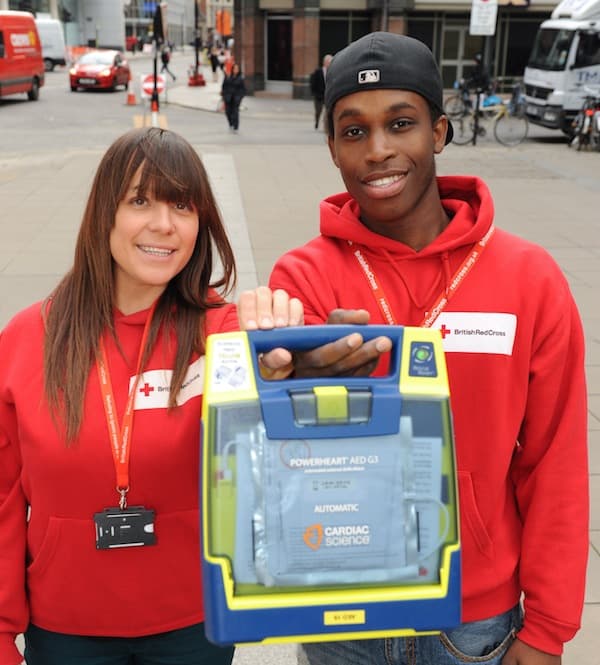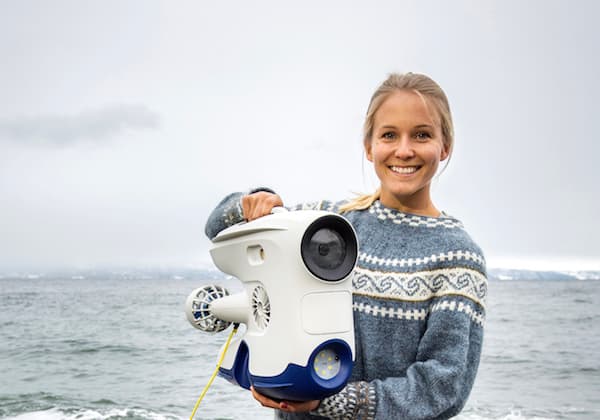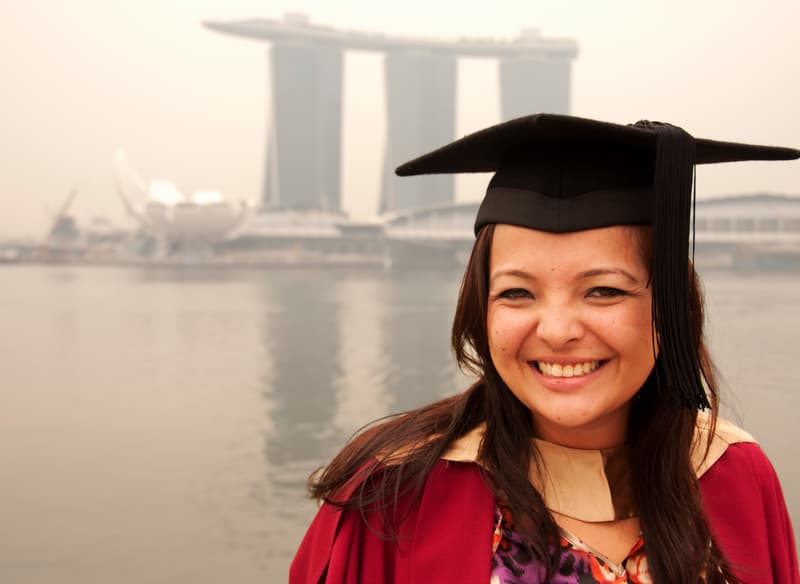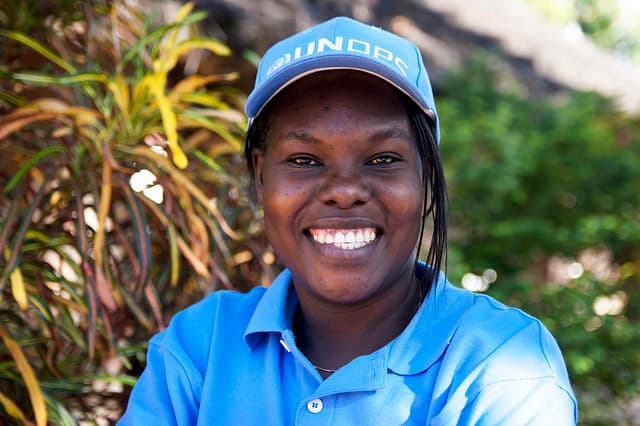Local Consultant to conduct a Review of the Domestic Violence Multisectoral Coordination Bodies across BiH
Sarajevo
- Organization: UNWOMEN - United Nations Entity for Gender Equality and the Empowerment of Women
- Location: Sarajevo
- Grade: Consultancy - National Consultant - Locally recruited Contractors Agreement
-
Occupational Groups:
- Gender-based violence
- Managerial positions
- Drugs, Anti-Money Laundering, Terrorism and Human Trafficking
- Closing Date: 2023-11-30
Background
Millions of women and girls worldwide suffer from some form of gender-based violence and harmful practices, be it domestic violence, rape, female genital mutilation/cutting, dowry-related killing, trafficking, sexual violence in conflict-related situations, son preference and the undervaluing of daughters, or other manifestations of abuse. In fact, for women and girls aged 16-44, gender-based violence is a major cause of death and disability. Up to 70 per cent of women experience violence in their lifetime. Violence against women persists in every country in the world as a pervasive violation of human rights and a major impediment to achieving gender equality. Such violence is unacceptable, whether perpetrated by the State and its agents or by family members or strangers, in the public or private sphere, in peacetime or in times of conflict.
In Bosnia and Herzegovina (BiH), current research points to widespread experiences of violence against women across the country. The first prevalence survey on VAW, conducted on a representative sample of adult women in BiH in 2013, showed that nearly half had experienced VAW, and 6% of women had specifically survived sexual violence (SV) prior to the age of 15. Perpetrators were mostly current or former partners. Survivors of SV often did not perceive themselves as victims; they were unaware of the available protection services, and most of them did not seek help of any organization of institution, due to the view that “they did not need help”, or because of fear, shame and low trust in institutions. The latest VAW prevalence survey, conducted by the Organization for Security and Co-operation in Europe (OSCE) in 2019 revealed that 4% of women reported surviving SV by a current or former partner and 0.4% by a non-partner since the age of 15. The OSCE survey also found that a large proportion of women had experienced sexual harassment: 28% since the age of 15 and 10% in the 12 months prior to the survey.
UN Women, grounded in the vision of equality enshrined in the Charter of the United Nations, works for the elimination of discrimination and violence against women and girls; the empowerment of women; and the achievement of equality between women and men as partners and beneficiaries of development, human rights, humanitarian action and peace and security. UN Women supports UN Member States as they set global standards for achieving gender equality and works with governments and civil society to design laws, policies, programs and services needed to implement these standards.
Since 2016, in BiH UN Women has been actively supporting the strengthening and harmonization of the legal framework and institutional response to domestic violence (DV) and violence against women (VAW) with the Council of Europe Convention on preventing and combating violence against women and domestic violence (Istanbul Convention) ratified by BiH in 2013. UN Women’s work on Ending Violence against Women (EVAW) in BiH is based on the Sustainable Development Cooperation Framework (UNSDCF 2021-2025) and the UN Women Strategic Note (2021-2025) Outcome 3: By 2025, people have access to better quality and inclusive health and social protection systems. It has been supported by Sweden and the European Union and has been conducted in collaboration with the governmental institutions and civil society organizations.
As a result of this work, policy proposals for enhancement of the legislative framework have been developed, multi-sectoral coordination has been strengthened and the quality, availability and access to services have been improved. Individuals and communities across BiH have supported the prevention of VAW by applying innovative and evidence-based approaches in raising awareness and changing attitudes around VAW. VAW has been placed in the centre of public discourse continuously reaching the general public and targeted audience.
Babovic, M., O. Pavlovic, K. Ginic, and N. Karadjinovic. 2013. Prevalence and characteristics of violence against women in BiH. Sarajevo: Agency of Gender Equality BiH.
Organization for Security and Cooperation in Europe (OSCE). 2019. OSCE-led survey on violence against women: Well-being and safety of women: Bosnia and Herzegovina, results report. OSCE.
Council of Europe. Chart of signatures and ratifications of Treaty 210 – Council of Europe Convention on preventing and combating violence against women and domestic violence. Status as of 06/06/2019. Available at:
Duties and Responsibilities
In Bosnia and Herzegovina, both entities and Brcko District have laws on the protection from domestic violence which prescribe extensive protective measures for survivors, while at the same time foreseeing mandatory rehabilitation and psychological treatment for perpetrators. Bosnia and Herzegovina was the 6th country to ratify the Council of Europe Convention on the Prevention and Elimination of Violence Against Women and Domestic Violence (Istanbul Convention) in November 2013, which entered into force in August 2014, thereby accepting the obligation to take all disposable measure to prevent violence, protect survivors and punish perpetrators. A specific legal framework for the prevention and elimination of domestic violence was adopted, along with new institutional and organizational arrangements, which ensured a multidisciplinary approach to the protection of survivors of violence and punishment of perpetrators.
Under the Federation of Bosnia and Herzegovina Protection from Domestic Violence (PDV) law, protocols on multi-agency co-operation must be entered into at the municipal level and involve all of the professionals that contribute to the prevention of domestic violence and the protection of victims, including social workers, teachers, medical personnel, the police, the judiciary and NGOs. Moreover, under its Article 37, co-ordination bodies must be set up at the cantonal level in order to co-ordinate the work of all relevant institutions in the implementation of the cantonal policies on domestic violence. Information provided by the authorities indicates that there are currently 10 such protocols at the cantonal level and 61 at the municipal level, whereas there are nine co-ordinating bodies on domestic violence at the cantonal level and, more recently, 38 local co-ordination mechanisms called Multi-Sector Teams (MSTs) have been set up. Likewise, in Republika Srpska, under Articles 11 and 21 of the Republika Srpska PDV law, the competent institutions in the area of protection and support to victims of domestic violence are required to sign a protocol for the co-ordination of their actions and must set up a team of experts in order to co-ordinate and draft an assistance plan for victims, also called MSTs. According to reports, this has led to some positive experiences such as the setting up of mobile teams for cases of intimate partner violence, which can jointly visit the victim and her family. A general protocol was signed in Republika Srpska in 2013 by the Ministries of Justice, Internal Affairs, Health and Social Welfare, Education and Culture and Family, Youth and Sports. This protocol is binding for local communities and can be applied directly unless they have signed a protocol at the local level. Indeed, 36 municipalities have developed their own protocols at the local level. A protocol on co-operation for cases of domestic violence was also signed in Brcko District in 2018 between the prosecutor’s office, the police, the department of health, the department of education, an NGO and a journalists’ association.
The Group of Experts on Action against Violence against Women and Domestic Violence (GREVIO) highlights that MSTs are mandated, on the one hand, to implement policies in the area of domestic violence at the local level and, on the other hand, to ensure interagency co-operation in individual cases of domestic violence. The competent institutions must, in fact, inform each other about reported cases of domestic violence, the interventions and support provided by each stakeholder, the sanctions that have been imposed on the perpetrator and the protection measures from which the victim benefits, as well as (in the case of Republika Srpska) ensure the drafting of a safety plan. GREVIO welcomes the efforts made to set up such an articulate network of multi-agency co-operation mechanisms. It understands that while such MSTs do indeed discuss the implementation of policies with the involvement of NGOs, exchanges on individual cases appear to be less frequent and where they are discussed, civil society is not always involved, particularly in the Federation of Bosnia and Herzegovina.
GREVIO further notes, that while the convention requires that such co-operation be based on a gendered understanding of violence against women, avoid secondary victimisation and aim to empower victims, reports have highlighted how both Centres for Social Work and the police, rather than adopting a victim-centred approach, frequently downplay the violence or are not responsive, leading to high levels of under-reporting and mistrust of institutions. Moreover, there is no single structure offering on a one-stop-shop basis the range of support services needed by a victim, which would greatly contribute to a victim-centred, empowering approach.
Moreover, GREVIO strongly encourages the authorities of Bosnia and Herzegovina to adopt the necessary measures to ensure that multi-agency co-operation under the local/cantonal co-ordination mechanisms extends to victims of all forms of violence against women. Such a multi-agency co-operation mechanism should encompass the participation of civil society and be based on a gendered understanding of violence against women and domestic violence and on the empowerment and economic independence of victims. It further encourages the authorities to ensure that protection and support services are made available as much as possible on the same premises.
To support the authorities of BiH in further strengthening multi-agency co-operation under the local/cantonal co-ordination mechanisms in line with GREVIO recommendations, the UN Women Country Office in Bosnia and Herzegovina is seeking to recruit a Local Consultant to conduct a review of domestic violence multisectoral coordination bodies across the country. The Local Consultant will work under the overall supervision of the UN Women Representative, UN Women Programme Specialist and the direct supervision of the UN Women EVAW Programme Coordinator.
IMMEDIATE OBJECTIVE
The immediate objective of this consultancy is to contract a local consultant to conduct an in-depth comprehensive review of the multisectoral coordination bodies across the country. The objective of the review is to produce data on the specificities of the multisectoral coordination mechanisms, the structures, internal and external quality control mechanisms and ways of ensuring sustainable functioning and financing. The analysis should further outline differences in the organization of the multisectoral mechanism between the Federation BiH and Republika Srpska, as well as specificities of the mechanism in different locations.
Tasks and Responsibilities
Based on the above-described objectives of the assignment, under the direct supervision of the UN Women EVAW Programme Coordinator, and designated UN Women team and overall supervision of the UN Women Programme Specialist, the local consultant is expected to undertake the following tasks and responsibilities:
- To develop a schedule / workplan for the design, implementation and finalization of the review (3 pages);
- To conduct a desk review on the applicable international and regional standards, as well as pieces of domestic legislation to design a comprehensive, in-depth assessment / review of the multisectoral coordination mechanisms;
- To develop a methodology for the review (10 pages) to include:
a) introductory in-depth interviews with UN Women, UNFPA, OSCE, AGE and Gender Centres;
b) live consultations / focus group discussions (FGDs) and key informant interviews (KIIs) with at least 5 multisectoral teams in each entity;
d) Interviews with a targeted group of CSOs.
- To develop a final report of the review detailing key findings and recommendations (20 pages).
Deliverables and timeframe
The local consultant will be expected to complete the below tasks within the indicative timeframe:
No. |
Deliverables |
Indicative number of consulting days |
Due dates |
A schedule / workplan for the design, implementation and finalization of the review developed |
2 |
20 December 2023 |
|
2 |
A desk review completed on the applicable international and regional standards, as well as pieces of domestic legislation to design a comprehensive, in-depth assessment / review of the multisectoral coordination mechanisms |
3 |
5 January 2023 |
3 |
A methodology for the review to include live consultations / focus group discussions (FGDs) and key informant interviews (KIIs) developed |
5 |
15 January 2023 |
4 |
|
10 |
5 February 2023 |
5 |
Final report in English submitted to UN Women for review and approval |
10 |
20 February 2024 |
|
|
30 |
|
The consultant should in the development of the deliverables allow time for deliverables to be reviewed and commented by UN Women before their finalization.
Any envisaged travel and accommodation costs should be indicated in the financial proposal and covered by the consultant.
Reporting
Under the direct supervision of the EVAW Programme Coordinator, the local expert will develop and deliver the above listed deliverables in accordance with the indicative timeframe. Payments will be processed based on approved deliverables and the schedule of payments outlined in the contract.
All deliverables of an acceptable standard and quality should be submitted to the UN Women and in English.
Bari, Farzana; Kovac, Vanja. Gender Brief Bosnia and Herzegovina: Gender equality state of play and recommendations for BIH GAP and EU GAP implementation. Sarajevo: UN Women CO in BiH, 2019. Pg. 18
Council of Europe. Chart of signatures and ratifications of Treaty 210 – Council of Europe Convention on preventing and combating violence against women and domestic violence. Status as of 06/06/2019. Available at:
Bari, Farzana; Kovac, Vanja. Gender Brief Bosnia and Herzegovina: Gender equality state of play and recommendations for BIH GAP and EU GAP implementation. Sarajevo: UN Women CO in BiH, 2019. Pg. 11
See Article 39 of the Federation of Bosnia and Herzegovina PDV law
GREVIO (Baseline) Evaluation Report on legislative and other measures giving effect to the provisions of the Council of Europe Convention on Preventing and Combating Violence against Women and Domestic Violence (Istanbul Convention), Bosnia and Herzegovina (2022), pg. 42 Available at:
GREVIO (Baseline) Evaluation Report on legislative and other measures giving effect to the provisions of the Council of Europe Convention on Preventing and Combating Violence against Women and Domestic Violence (Istanbul Convention), Bosnia and Herzegovina (2022), pg. 6 Available at: pg. 46
Ibid.
Ibid. pg. 47
Competencies
Core Values/guiding principles:
- Integrity - Demonstrate consistency in upholding and promoting the values of UN Women in actions and decisions, in line with the UN Code of Conduct.
- Professionalism - Demonstrate professional competence and Consultant knowledge of the pertinent substantive areas of work.
- Cultural sensitivity and respect for diversity - Demonstrate an appreciation of the multicultural nature of the organization and the diversity of its staff. Additionally, the individual should have an international outlook, appreciating difference in values and learning from cultural diversity.
Core Competencies:
- Planning & Organizing – Develops clear goals in line with agreed strategies, identifies priorities, foresees risks and makes allowances accordingly.
- Organizational Awareness - Demonstrate corporate knowledge and sound judgment.
- Teamwork - Demonstrate ability to work in a multicultural, multi-ethnic environment and to maintain effective working relations with people of different national and cultural backgrounds.
- Accountability – Takes ownership of all responsibilities and delivers outputs in accordance with agreed time, cost and quality standards.
Please visit this link for more information on UN Women’s Core Values and Competencies:
Functional Competencies:
Knowledge Management and Learning
- Shares knowledge and experience
- Seeks and applies knowledge, information, and best practices from within and outside UN Women
- Actively works towards continuing personal learning and development in one or more practice areas, acts on learning plan and applies newly acquired skills
- Development and Operational Effectiveness
- Demonstrates excellent written and oral communication skills. Communicates sensitively, effectively, and creatively across different constituencies
- Demonstrates very good understanding of and experience in communications and outreach/advocacy
- Ability to perform a variety of standard specialized and non-specialized tasks and work processes that are fully documented, researched, recorded and reported
- Ability to review a variety of data, identify and adjust discrepancies, identify and resolve operational problems
- Uses Information Technology effectively as a tool and resource
Leadership and Self-Management
- Focuses on result for the client and responds positively to feedback
- Consistently approaches work with energy and a positive, constructive attitude
- Remains calm, in control and good humored even under pressure
- Proven networking skills and ability to generate interest in UN Women’s mandate
- Identifies opportunities and builds strong partnerships with clients and partners
Required Skills and Experience
- Advanced academic degree (minimum Master’s) in Economics, Gender Studies, Development Studies, Public Policy, Social Sciences, or related fields relevant to the requirements of the TOR. A PhD in the areas listed above will be considered as an asset.
Experience:
- A minimum of 5 years of professional experience in designing, planning and implementation and/or review and assessment of initiatives or projects focused on violence against women and girls prevention and response, and/or women’s rights and/or gender equality at national, regional and/or international level.
- Proven experience in writing and/or research on policies, legislations, strategies and programmes (at least 2 completed research studies/strategies/programmes).
- Previous experience in working with UN agencies will be considered an advantage.
Language
- Excellent written and oral communication skills in English (a sample of a writing in form of an excerpt from a report/study in English).
- Excellent written and oral communication skills in B/H/S.
Evaluation of applicants
UN Women applies a fair and transparent selection process that takes into account both the technical qualification of potential consultants as well as the financial proposals submitted in support of consultant applications. Candidate applications will be evaluated using a cumulative analysis method taking into consideration the combination of applicant experience, qualifications and a financial proposal. The contract will be awarded to the individual consultant whose offer has been evaluated and determined as:
- responsive/compliant/acceptable,
- and having received the highest score out of technical and financial criteria defined below.
Based on a desk technical evaluation, only candidates receiving a minimum of 50 points in the technical evaluation will be considered for financial evaluation.
Criteria:
Technical Evaluation (70%) – 70 points
- – SATISFACTORY / UNSATISFACTORY
- A minimum of 5 years of professional experience in designing, planning and implementation and/or review and assessment of initiatives or projects focused on violence against women and girls prevention and response, and/or women’s rights and/or gender equality at national, regional and/or international level – 30 pts
- Proven experience in writing and/or research on policies, legislations, strategies and programmes (at least 2 completed research studies/strategies/programmes) – 30 pts
- Previous experience in working with UN agencies will be considered an advantage – 10 pts
- Excellent written and oral communication skills in English – SATISFACTORY / UNSATISFACTORY
- Excellent written and oral communication skills in B/H/S – SATISFACTORY / UNSATISFACTORY
Financial Evaluation (30%) – 30 points
Evaluation of submitted financial offers will be done based on the following formula: S = Fmin / F * 30
S - score received on financial evaluation
Fmin - the lowest financial offer out of all the submitted offers qualified over the technical evaluation round
F - financial offer under the consideration.
Documents to be included when submitting the proposals
Interested individual consultants must submit the following documents:
- Expression of interest and confirmation of immediate availability (cover letter)
- Detailed financial proposal in BAM inclusive of all costs (which includes consultancy fees, travel expenses, accommodation etc.)
- Completed UN Women Personal History (P11) form, that can be downloaded from
Please note that incomplete applications will not be considered (all documents indicated above need to be uploaded).
Please note that any envisaged travel and accommodation costs should be covered by the consultant.
For any additional information, please contact unwomen.bih@unwomen.org
How to Submit the Application: To submit your application online, please follow the steps below:
- Download and complete the UN Women Personal History Form (P11)-
- Merge your UN Women Personal History Form (P11), the Financial Proposal, and Expression of Interest into a single file; The system does not allow for more than one attachment to be uploaded
- Click on the Job Title (job vacancy announcement)
- Click 'Apply Now' button, fill in necessary information on the first page, and then click 'Submit Application'
- Upload your application/single file as indicated above with the merged documents (underlined above)
- You will receive an automatic response to your email confirming receipt of your application by the system
Qualified women and men and members of minorities are encouraged to apply. UN Women applies fair and transparent selection process that would take into account the competencies/skills of the applicants as well as their financial proposals.
At UN Women, we are committed to creating a diverse and inclusive environment of mutual respect. UN Women recruits, employs, trains, compensates, and promotes regardless of race, religion, color, sex, gender identity, sexual orientation, age, ability, national origin, or any other basis covered by appropriate law. All employment is decided on the basis of qualifications, competence, integrity and organizational need.
If you need any reasonable accommodation to support your participation in the recruitment and selection process, please include this information in your application.
UN Women has a zero-tolerance policy on conduct that is incompatible with the aims and objectives of the United Nations and UN Women, including sexual exploitation and abuse, sexual harassment, abuse of authority and discrimination. All selected candidates will be expected to adhere to UN Women’s policies and procedures and the standards of conduct expected of UN Women personnel and will therefore undergo rigorous reference and background checks. (Background checks will include the verification of academic credential(s) and employment history. Selected candidates may be required to provide additional information to conduct a background check.)
Due to large number of applications we receive, we are able to inform only the successful candidates about the outcome or status of the selection process.








